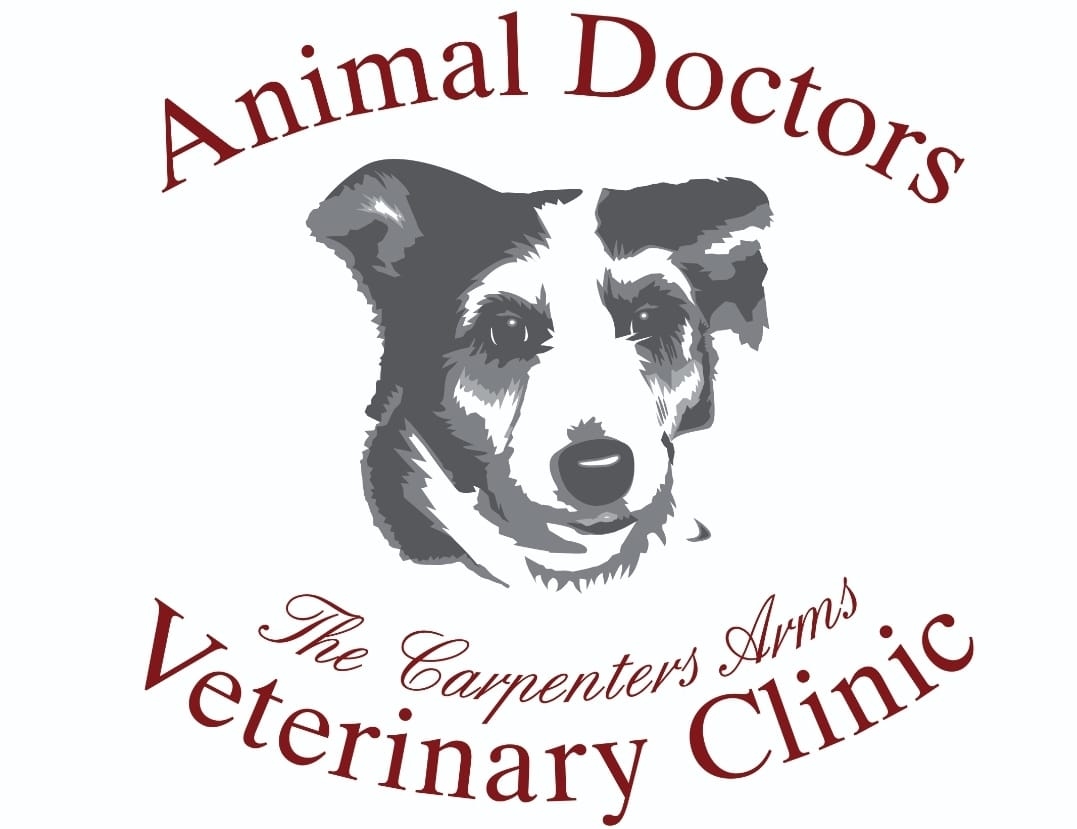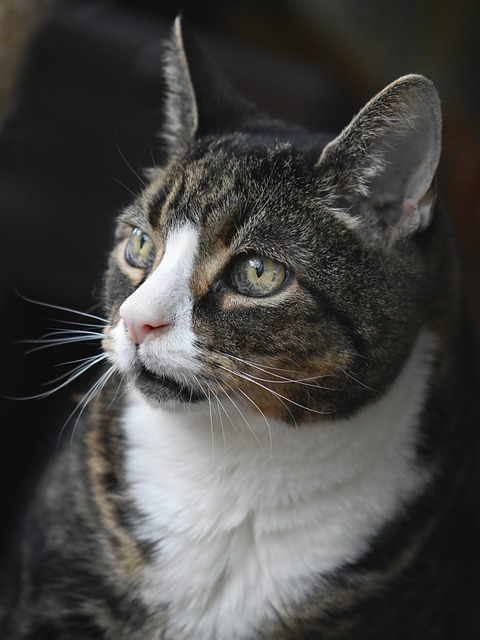Most of us can agree that it’s not fun getting old: constant tiredness, achy bones and dreaded wrinkles are just a few of the many downsides of getting older. But did you know that our dogs and cats might be going through something similar as they get older? While they probably won’t be getting crow’s feet, pets do go through changes as they age, many of which require our attention to keep them healthy. Today, we will be discussing your senior pets, and how you can help look after them in their Golden Years.
When is my Pet a Senior?
First of all, we should probably establish when your pet actually is a senior. Ask a hundred different people when they think a person is considered ‘old’ and you’ll get a hundred different answers! It’s the same for our pets because, to be honest, we don’t know! Old age is a loose term, and we don’t currently have a way to definitively say when an animal is a senior. Instead, we take multiple factors into account, such as life expectancies of the breed, an individual’s general health, and so on.
As a rough guide, most cats are considered seniors when they are at least 10 years old. Dog breeds vary a lot more than cat breeds, so the age of seniority varies more as well. Generally, the larger the breed, the shorter the life expectancy, thus becoming a senior happens more quickly – this means a Mastiff or an Irish Wolfhound might be senior as young as 5-8 years old, while a Terrier can be called senior around age 10. We do emphasise that this is just a guideline, and just like people, there is great variation; you may have a middle-aged pooch that prefers to sleep all day, or a 12 year old cat out terrorising the neighbourhood like he was a decade younger!
Why Do They Need Extra Care?
Okay, so you’ve used our imperfect system and determined that your pet is a senior. Why does this matter? You haven’t had to visit the vets in years (apart from boosters, we hope!) and they seem in great health; why does anything need to change now?
Well as we mentioned above, many changes follow ageing in animals. An elderly pet will be less energetic, have a slower metabolism, and be more susceptible to disease. They aren’t a young puppy or kitten anymore, and you may not be able to do the same things you once did together. This is why knowing when your pet is elderly is so important – if you are more aware of their ageing, it is easier to make changes that will make their Golden Years more comfortable.
The next part of this article will discuss the kinds of changes you should make, and the things you should be thinking about more, as your pet ages.
How to Look After a Senior Pet
Before looking at specific changes, let’s talk about changes in general. Ageing isn’t the same as flipping on a switch – it is a slow, gradual process, with different aspects of your pet ageing at different rates. This means that there won’t be one day when you say “right, today I’ll treat Rover like an old dog!” What we mean by this is that changes should made over time; introducing new things too fast or changing habits overnight can actually cause more harm than good. All of the changes listed below should be made slowly, unless there is a specific reason advised by your vet.
As pets get older, their metabolisms tend to slow down. This means that their bodies are not as efficient at utilising the energy they gain from food, so it is stored as fat. Older pets tend to be less energetic too, meaning energy that was once burned off quickly on long walks now is retained in their body. This all leads to obesity, which is a very big problem in pets. Obesity leads to a number of other diseases that can make their health very poor, including heart issues, liver problems, diabetes, joint problems, and more. It can be very difficult to slim down fat pets, so it is always better to prevent them gaining too much weight – we recommend switching senior pets onto a senior diet that contains fewer calories while still providing the nutrients they need (we will talk more about this later). They may also need less food in general, which includes restricting treats!
However, not all pets gain weight in their old age – some do the opposite and start losing weight, which can be just as bad as weight gain. An underweight pet’s body will start to use their muscle and other tissue for energy instead, and they can waste away quite dramatically. Often there is an underlying cause, such as hyperthyroidism in cats, diabetes, or Cushing’s disease. If you notice your pet losing weight quickly in their old age, let us know so we can make sure nothing is amiss. Similar to weight gain, their diet might have to be adjusted, to one that is more calorie dense.
As we’re on the topic of weight, we will talk about diet in general. As a pet ages, their body becomes less efficient at digesting food, especially protein and fat (this is because the organs responsible for processing these, the liver and kidney, do not work as well as a pet gets older), which can cause problems for many parts of their bodies. Senior foods will often contain higher quality protein and less fat, to make sure their kidneys and liver don’t get overworked. As well as that, they contain various vitamins and minerals that help maintain joints, the heart, the skin and coat, and many other parts of a senior dog or cat’s body. Mention senior food next time you visit, and we can help you choose the right one for your senior pet.
Sick of stiff joints on cold mornings?
It happens to old dogs and cats too. Arthritis and other joint diseases become a lot more common as a pet ages. Arthritis causes stiffness, pain, swelling and a reluctance to move. In extreme cases, the joints can be seriously damaged, requiring surgery to repair them. Sadly, arthritis cannot be avoided, but it can be managed and its negative effects reduced. Senior diets mentioned above often have supplements to help joints, or the supplements can be added to a normal diet separately. It may be worth considering reducing their exercise intensity too, keeping it light and easy. Be wary though, as too little exercise can lead to obesity, which can actually make arthritis worse; don’t let them become a couch potato! Around the house, you can also reduce the stress on their aching joints by giving them plenty of nice soft bedding to lay on, and helping them up and down stairs, or even not letting them go upstairs at all. Chronic arthritis can also be treated medically with drugs.
Probably one of the biggest areas of disease in elderly pets, and one of the most important, is their head. Pet noggins contain many organs and are responsible for all their important senses, so it is important to try and keep it a healthy area. Vision tends to get worse in animals as they are, but there are also problems that occur that aren’t so normal – if there is any evidence of irritation, swelling, discharge or pain, it may be worth letting us know. You may also notice their hearing is also not as keen as before, or their ears are a bit greasy, smelly or oozy, in which case some investigation might be useful. Opening wide, elderly pet’s teeth are often a big problem too, with bad breath indicating an unhealthy mouth – dental problems can cause immense pain and often spread to other areas of the head, so having regular dental checks is important. Keep a close eye on your pet’s eyes, ears and teeth, as make sure any small problems are investigated before they become big!
Changes in behaviour
Many older animals seem to become more “rigid” or “set in their ways” – that’s the origin of the phrase “you can’t teach an old dog new tricks” in fact! However, we now know that older animals are capable of learning throughout life – and this change in behaviour may be the sign of “Cognitive Dysfunction Syndrome” or “Senile Dementia”. Typical signs are distress, fixed routines (or, conversely, inability to follow their normal routine), loss of taught behaviours, including toilet training, and body clock disturbances. Fortunately, if caught early, there are now medications that can help to improve matters and slow down the deterioration.
Final Thoughts
All of the considerations listed above are just a small number of the things you should be thinking about as your pet gets older. To make your job easier, we also recommend visiting us at least once a year for a general check-up (possibly more frequently if they have any illnesses), so we can be on the lookout for any problems, give advice on keeping them comfy, and just generally make sure everything is okay. You could tie this in with regular booster vaccines, as unvaccinated old pets are just as susceptible to these diseases as young ones are, so don’t forget them!
For almost all elderly issues, prevention is better than cure, and spotting anything amiss early will often lead to a better outcome. We sadly cannot halt ageing, but with a little extra attention, some changes here and there, and regular visits to the vets, you can go a long way to making sure your senior pet’s Golden Years are healthy and happy.

